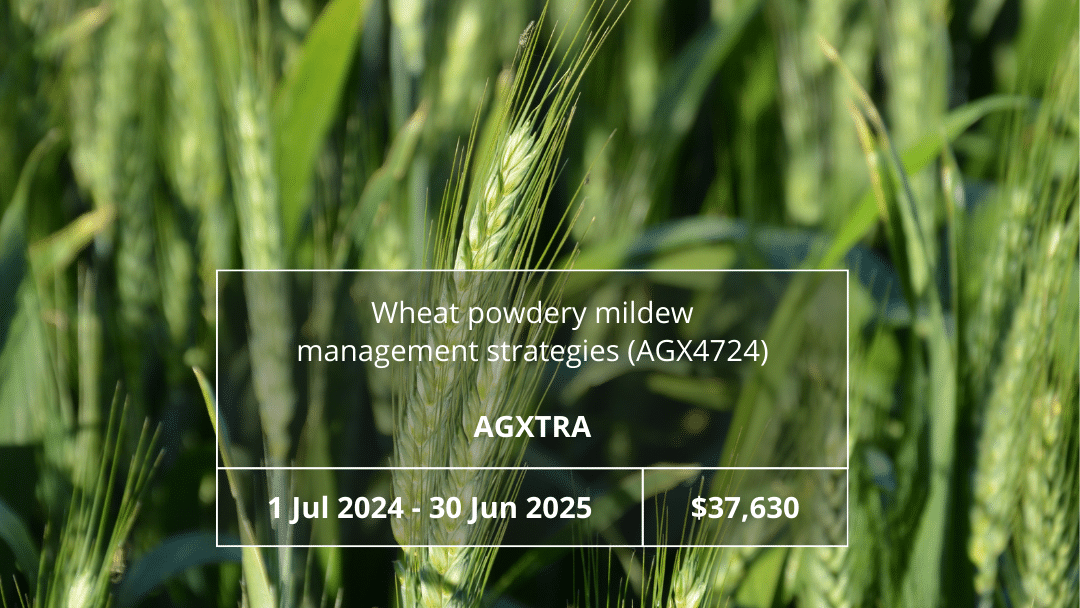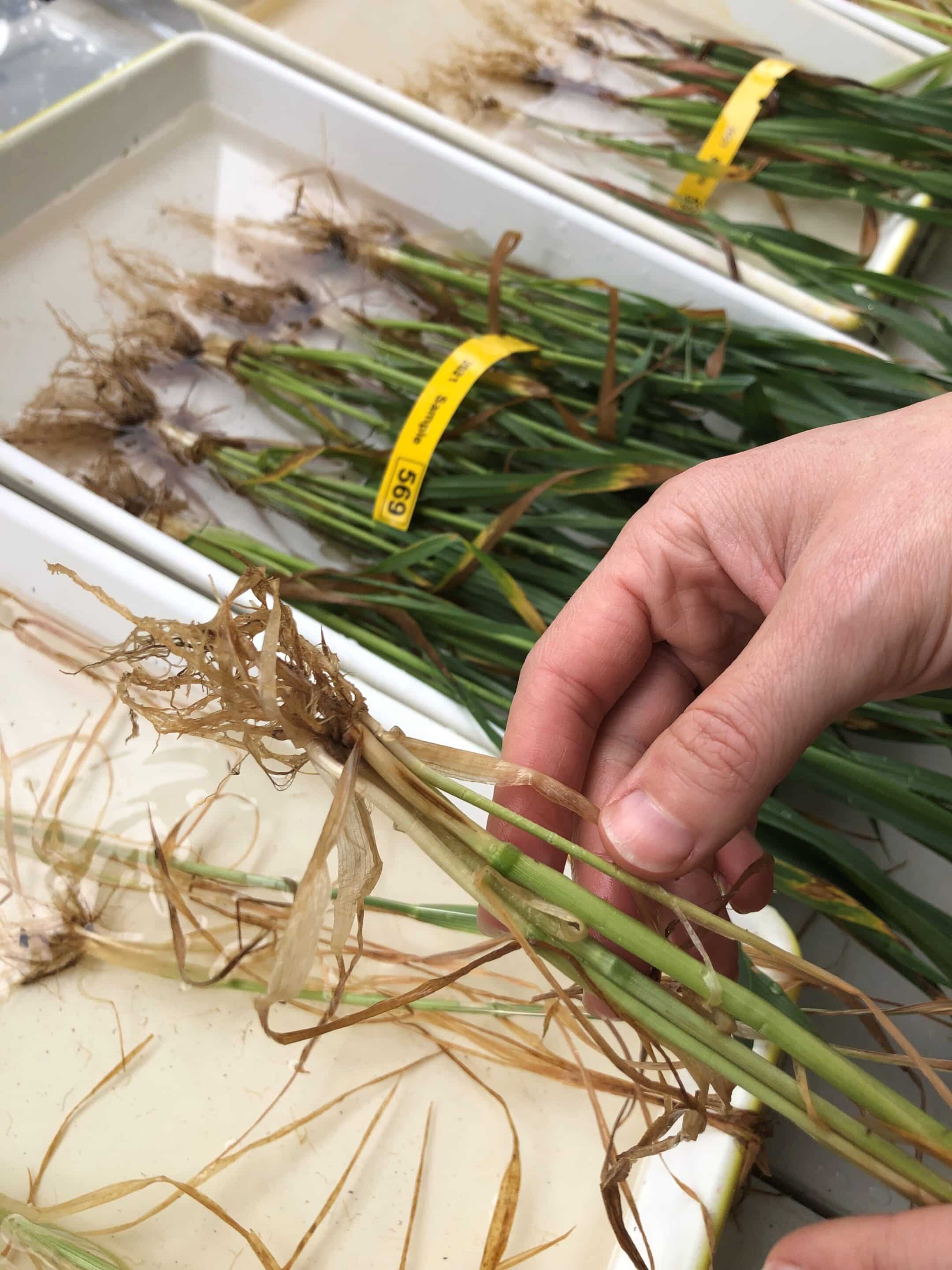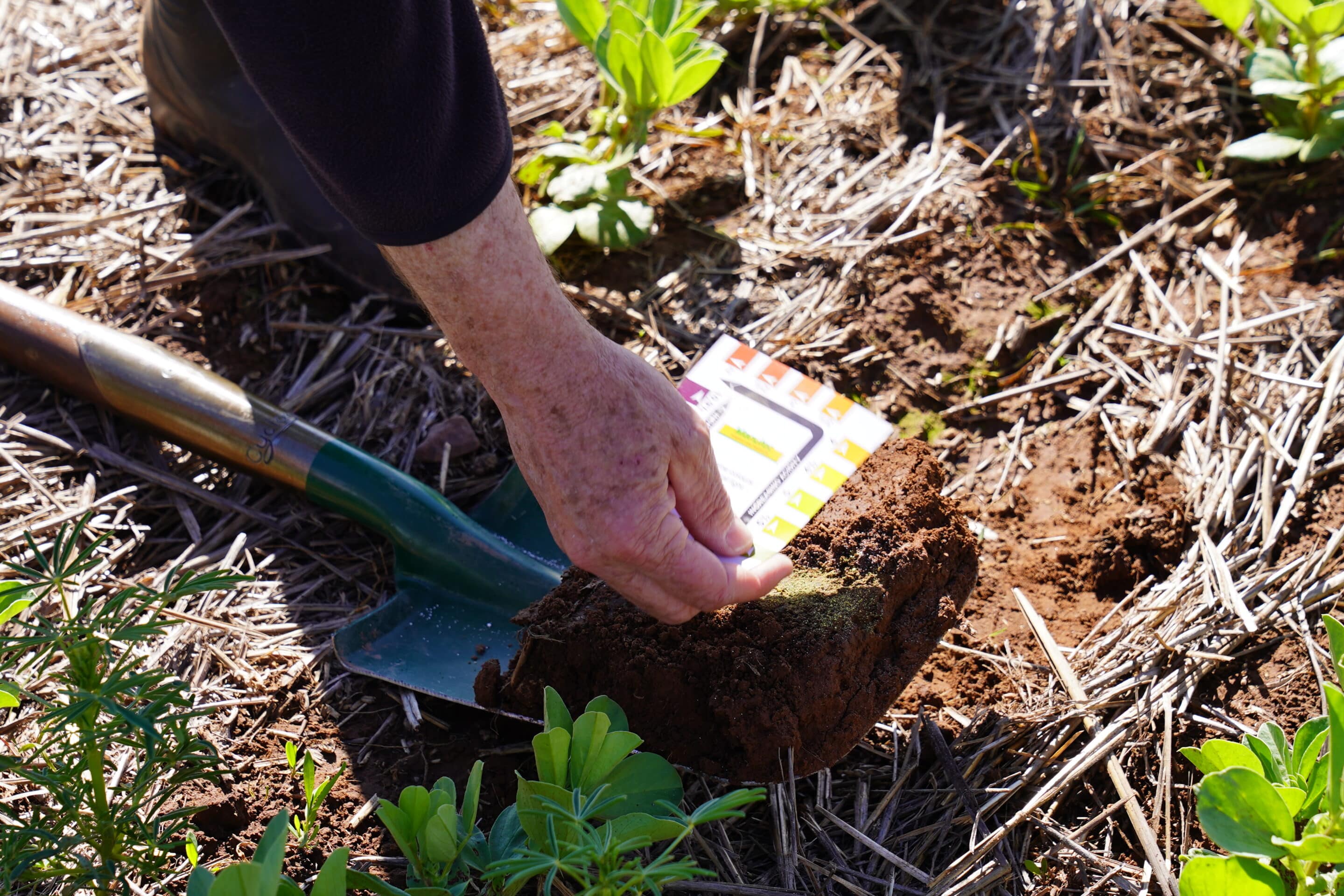START
FINISH

Summary
This project aims to demonstrate to growers and agronomists the effectiveness of existing and emerging wheat powdery mildew (WPM) control options across varieties with diverse susceptibility ratings. It will also raise awareness of the importance of cultural considerations with regards to WPM management and an understanding of pathogen resistance to commonly used fungicides. This project provides an opportunity to extend existing knowledge generated through current SAGIT-funded WPM projects.
Project Participants
Richard Porter, AgXtra
The research
This project aims to demonstrate to growers and agronomists the effectiveness of existing and emerging wheat powdery mildew (WPM) control options across varieties with diverse susceptibility ratings. It will also raise awareness of the importance of cultural considerations with regards to WPM management and an understanding of pathogen resistance to commonly used fungicides. This project provides an opportunity to extend existing knowledge generated through current SAGIT-funded WPM projects.
Funding
$37,630
More information
Richard Porter
T: 0413 027 670
E: [email protected]



